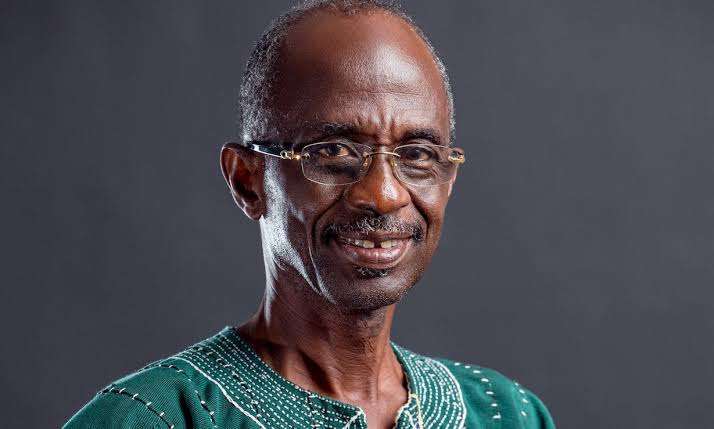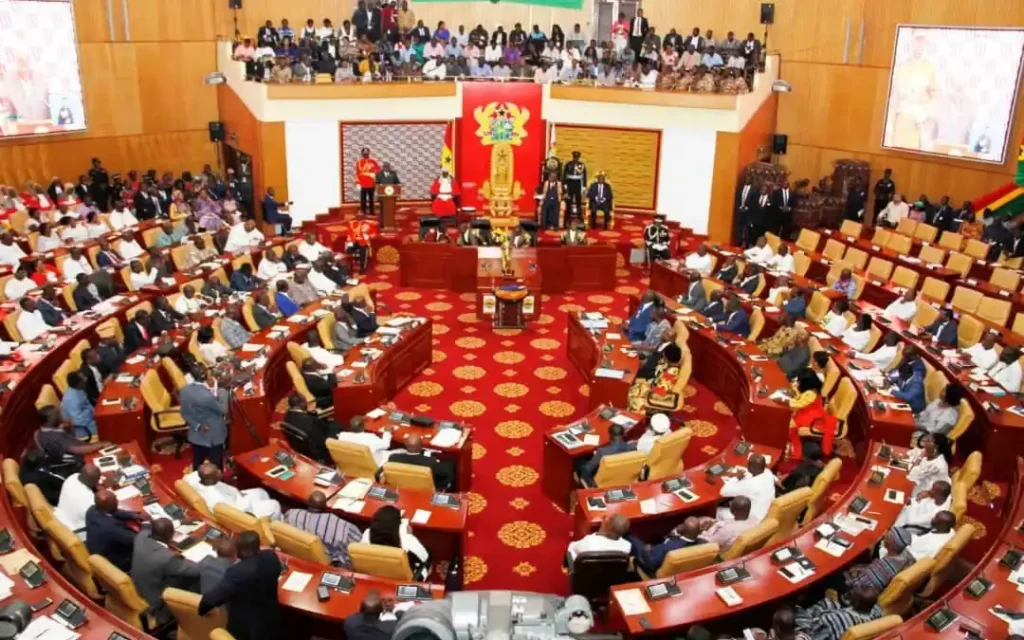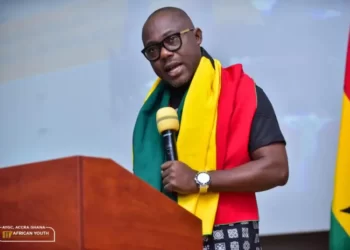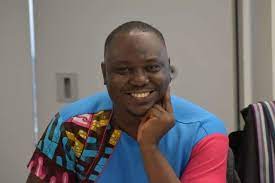The tension between political party leadership and parliamentary independence has resurfaced, this time involving the National Democratic Congress (NDC) Chairman, Johnson Asiedu Nketiah, and his directive to Members of Parliament (MPs) not to show up in Parliament when there happens to be a recall.
Aseidu Nketiah’s statement raised a lot of concerns over the encroachment of political party structures on parliamentary autonomy, especially during the heat of election campaigns.
Asiedu Nketiah’s recent remarks on parliamentary recall have sparked discussions among political analysts and parliamentarians.
This assertion frames the chairman’s statement as more than a casual remark, highlighting its potency to influence the actions of NDC MPs.
Mechanisms of Parliamentary Recall
Discussing the logistics of parliamentary recall, Mr. Sammy Obeng Executive Director of Parliamentary Network Affairs has outrightly condemned Johnson Aseidu Nketiah’s Statement and urged collaboration among members of parliament. He cautioned MPs to conduct their affairs with the needed decorum and independence free from Political rhetoric and interference. Mr. Obeng elaborated on the two possible mechanisms.
“Parliament can be recalled in two ways. Now that the house has been adjourned sine die, to have Mr. Speaker say that well we need to come back by the normal parliamentary procedure or to have any group in Parliament 15% of members of Parliament recall Parliament through an emergency recall path.’’
Mr. Sammy Obeng Executive Director of Parliamentary Network Africa
He further noted the practical challenges of convening parliament so close to elections, emphasizing the focus of MPs on campaigning.
“We are about three weeks to elections. It makes for practical impossibility for the house to have anything meaningful between now and elections.”
Mr. Sammy Obeng Executive Director of Parliamentary Network Africa
Controversy Over Nketiah’s Directive

Mr. Obeng expressed dissatisfaction over Nketiah’s directive to MPs, describing it as inappropriate.
“[ In my opinion], It does not lie in the mouth of a party chairman, on a political rally platform to literally instruct his members of parliament and say that if parliament is recalled whether through Mr. Speaker getting the house back or through an emergency, nobody should step foot in parliament.”
Mr. Sammy Obeng Executive Director of Parliamentary Network Africa
This begged the question of balance between party loyalty and parliamentary independence, particularly when such directives appear to undermine institutional procedures.
The Role of Political Parties in Parliamentary Affairs
The conversation also drew parallels with the earlier restructuring of NDC parliamentary leadership.
Meanwhile, when the NDC was restructuring its leadership in parliament, it was the administrative arm of the party that communicated the change without necessarily involving the MPs themselves.
This mirrors the current situation and reflects a growing pattern of undue party influence in parliamentary matters.
This trend, according to critics, risks eroding the representational role of MPs, which is to act in the best interests of their constituents rather than their party hierarchy.
Representation and Parliamentary Autonomy

Mr. Obeng further emphasized the importance of parliamentary representation for Ghana’s democracy.
“Parliament can only host 275 people, or more depending on how things go, and all of us, the 30 plus million Ghanaians cannot be in the chamber of Parliament and that is why we select representatives. If the Speaker recalls parliament today and says, let’s reconvene on Tuesday or Thursday because there is this particular issue we got to deal with urgently. It is because all Ghanaians must necessarily be represented for critical decisions to be taken.”
Mr. Sammy Obeng Executive Director of Parliamentary Network Africa
According to Mr. Obeng, Such statements underscore the need for MPs to prioritize their legislative duties over party directives, particularly in matters of national importance.
The Broader Implications for Democratic Governance

The incident raised broader concerns about the relationship between political parties and democratic institutions.
Mr. Obeng argued that public instructions from party leadership could undermine parliamentary independence and supremacy.
“I think it is quite in bad taste for the party chairman. You may have had conversations with your party folks and MPs in private, but to put this out there especially also for a party Chairman who is a member of the Parliamentary Service Board, I think that, all of these dynamics when put together, we could do our Parliament a lot of good by avoiding some of these things.’’
Mr. Sammy Obeng Executive Director of Parliamentary Network Africa
Mr. Obeng concurred, emphasizing the need for parliament to safeguard its independence.
The ongoing debate reflects a critical tension within Ghana’s democracy; balancing party politicking over institutional interactionism within the limelight of democratic independence.
As elections approach, these dynamics are likely to intensify, with implications for the effectiveness of parliamentary governance.
Ensuring that MPs can act in the best interests of their constituents, free from undue party interference, remains essential for preserving the integrity of Ghana’s democratic processes.
READ ALSO; McBrown Shares Testimony After Surviving Two Life-Threatening Accidents




















